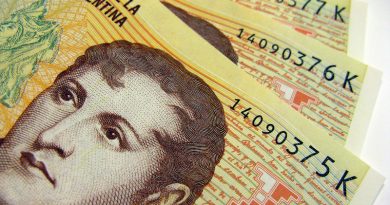Watchdog Reports Corruption Among South Sudan’s Elite
By Anthony Tokarz
Staff Writer
A report issued by a watchdog organization, The Sentry, reinvigorated global attention to institutionalized corruption amongst the South Sudanese elite. The report accuses an array of officials, including the young nation’s President Salva Kiir and former Vice President Riek Machar, of theft, money laundering, and war profiteering. The report describes the South Sudanese economy as fiefdoms administered by corrupt government officials, and subject to violence attendant upon these officials’ dissatisfaction with what they managed to steal for themselves.
The report establishes a clear causal relationship between this economic configuration and the ongoing civil war, explaining that “these predatory economic networks play a central role in the current civil war, because much of the conflict is driven by elites attempting to re-negotiate their share of the politico-economic power balance through violence.”
This quote is important to understanding the corrupt economics that precipitated the civil war and the widespread raiding that captured the world’s attention. The repetition of “kleptocracy” throughout the report calls constant attention to the motif of institutionalized graft that defines the public perception of South Sudan. The report does not dwell on the activities and misdeeds of individuals, instead arguing that the kleptocratic system has entrenched mechanisms that have automated graft.
According to Transparency International, South Sudan is the fifth most corrupt nation on earth, following North Korea, Somalia, Sudan, and Afghanistan. The utter absence of accountability within the upper echelons of the South Sudanese government has created conditions particularly favorable for exploitation of the nation’s vast natural resources, as well as its people. The corruption, according to the report, flows through four central state channels: the extraction industry of natural resources, the military, state spending, and money laundering through government-associated firms. All four find expression in the most strident case study of the government’s intentional mismanagement of resources, the Dura Saga.
In 2007, the government awarded contracts worth a total of $2.3 billion to unregistered companies in order to create a strategic grain reserve. The companies were legally unable to do business because they were not registered with the government, a report from Reuters found. The state lost some unknown amount of money on the deal, less than the sticker price of $2.3 billion, but news of the scandal rocked the state. The African Independent writes that popular anger flared following the leak of Kiir’s letter to some 80 underlings to return the $4 billion in assets that they had stolen from the state treasury. Civil war, caused by an ethnic rivalry and fueled by anger over widespread corruption, erupted in 2013. In that time, both Kiir and his rival took advantage of the confusion to steal more resources and use the proceeds to buy luxury real estate across the border in Nairobi, Kenya.
The Sentry’s reports elicited a prompt dismissal of corruption by Kiir’s spokesperson, and the government hurried to shutter a South Sudanese news publication, The National Mirror, that published a headline promulgating The Sentry’s report. The government’s actions gave rise to concern that the South Sudanese people might experience repercussions as a result of the report’s findings.
The courage of the South Sudanese people, “who are contributing to these reports and helping with the investigations at great personal risk to themselves,” is impressive, said Nicolas Michel, former United Nations under secretary-general legal affairs. He compared the efforts of South Sudanese to what he had witnessed in Lebanon following the assassination of Prime Minister Rafic Hariri, who was killed in a bombing in 2005.

